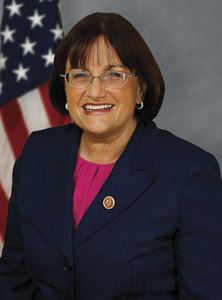Updated BTU Act introduced in House
Energy Disrupter
ADVERTISEMENT
Reps. Anne Kuster, D-N.H.; Mike Kelly, R-Pa.; Peter Welch, D-Vt.; and Chellie Pingree, D-Maine, on May 14 introduced an updated Biomass Thermal Utilization Act, which aims to provide tax credits for commercial and industrial wood heating appliances.
Following its introduction, the bill was referred to the House Committee on Ways and Means. Companion legislation was introduced by Sens. Angus King, I-Maine, and Susan Collins, R-Maine, in April. That bill was referred to the Committee on Finance.
A tax credit for residential wood heating appliances was established last year. In late 2020, President Trump signed a legislative package that included certain provisions of an earlier version of the BTU Act. That bill established a three-year investment tax credit (ITC) for high-efficiency home heating equipment that fires wood pellets, chips, or cordwood.
The current residential credit applies to the installed cost of home heating and hot water systems that utilize wood pellets, chips and cordwood at efficiencies greater than 75 percent high heat value. The ITC is for 26 percent in 2021 and phases down to 22 percent in 2022 and 2023.
The updated BTU Act legislation introduced this spring aims to enact a similar credit for commercial and industrial applications. Specifically, the bill aims to add biomass fuel property to the list of existing technologies that qualify for the Section 48 business ITC at an initial rate of 30 percent before expiring at the end of 2028. To qualify, the biomass fuel property must operate at a thermal efficiency rate of at least 75 percent and be used to either heat space within the dwelling or heat water. The bill would also restore the existing Section 25 ITC for residential wood heating systems to 30 percent, while also extending the credit through 2028.
“Modern wood boilers and heating systems are essential to transitioning away from fossil fuels,” Kuster said. “Incentivizing this option not only levels the playing field but also helps support a strong wood products economy in New Hampshire and across the country. I’m pleased that tax incentives for families looking to install these systems in their private residences became law last year, and now it is time to extend that same opportunity to commercial business places. I’m proud to reintroduce this bipartisan legislation, and I will continue working in Congress to advance smart energy solutions for generations to come.”
“The Pellet Fuels Institute cheers the introduction of the BTU Act and sees it as a recognition that modern pellet heating can provide the same sustainable and renewable thermal energy solution for businesses and institutions that it can for private residences,” said Tim Portz, executive director of the Pellet Fuels Institute.
“Efficient use of sustainable biomass for thermal energy is a critical option for US decarbonization of the C&I sector, and particularly for high temperature thermal needs,” said Dan Wilson, board chair of the Biomass Thermal Energy Council. “This energy pathway will develop a key beneficial use market for residues from the sustainable agriculture and forestry sectors, while replacing fossil fuel use and creating local jobs. The BTU Act would ensure modern, clean, and efficient energy conversion systems are encouraged, and begin to correct the disparity in policy treatment for this pathway as compared to other energy sources and pathways.”
Additional information on the bill, H.R. 3251, is available on the Congress.gov website.
















